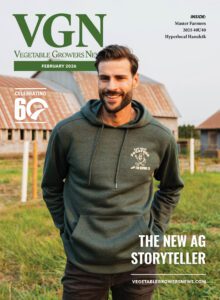
Nov 21, 2024Court rulings highlight challenges with H-2A labor compliance
Earlier in 2024, a federal district court in Georgia ruled that the Department of Labor’s (DOL) “Worker Protection” rule was unlawful, raising fresh questions about H-2A labor compliance and its impact on growers across the country.
Court finds DOL exceeded its authority
The National Council of Agricultural Employers (NCAE) opposed the rule during rulemaking, and the court agreed with its objections. The ruling stated that the final regulation conflicted with the National Labor Relations Act of 1935 (NLRA).
The NLRA gave workers the ability to form unions but specifically excluded agricultural workers. Congress in 1935 feared that unionized farm workers could strike during critical harvests, jeopardizing the nation’s food supply amid the Great Depression.
The Georgia court determined that the DOL unlawfully extended union rights to H-2A workers, a group Congress had intentionally excluded. The judge concluded the rule functionally amended the NLRA, something an executive branch agency cannot do.
The injunction limited the rule’s enforcement to the 17 plaintiff states and grower plaintiffs. For the other 33 states, the regulation remains in place, creating confusion and additional costs.
A more prudent move by the acting secretary would have been to recognize the DOL’s fundamental error and move to withdraw the offensive regulation.
Ongoing legal actions
NCAE has filed an action in Kentucky to extend relief to the other 33 states. A similar case followed in Mississippi, and a North Carolina court will also weigh in. “Hopefully, relief will come quickly,” Marsh wrote.
Meanwhile, concerns about wage inflation remain top of mind for growers. When I travel around the country and meet with farm and ranch families, one of the biggest concerns I hear is over the extraordinary impact wage inflation is having on their cost of doing business. The misuse of DOL data in setting H-2A wage rates has harmed U.S. agriculture.
H-2A wage rate disputes
According to the USDA’s 2022 Census of Agriculture, more than 140,000 farms shuttered in the previous five years, while more than 20 million acres of prime farmland went fallow. Marsh argued that foreign competitors, not subject to mandated wage rates, gained an advantage at the expense of U.S. producers.
NCAE continues to fight H-2A wage rate determinations in court. In Florida, NCAE filed for summary judgment after the judge previously denied a preliminary injunction under Chevron deference. In June, however, the Supreme Court overturned Chevron.
More recently, a federal district court in Louisiana determined that the DOL’s wage rate for sugarcane truck driver was unlawful. NCAE has alerted the Florida judge to both the Supreme Court’s action and the Louisiana ruling.
These rulings highlight how disputes over wages and union rights directly affect H-2A labor compliance, forcing growers to adjust strategies while waiting for clarity.
The fight for fairness
As Americans, we shouldn’t have to litigate common sense. While some rulings are encouraging and a few things may be turning our way, there remains work to do.
For many growers, keeping up with shifting court decisions and regulatory changes has made H-2A labor compliance one of the most pressing challenges in their operations today.
Written by Michael Marsh

— Michael Marsh has led the National Council of Agricultural Employers since 2017. A Wyoming native and certified public accountant, Marsh worked for a CPA firm with farm and ranch clients investigating fraud. He was director of finance for the Almond Board of California for 7 years and for 15 years was CEO of the largest U.S. dairy producer trade association.
















